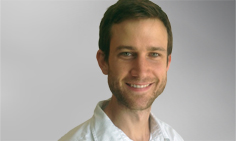WHEN strangers meet they tend to pick safe topics of conversation, to protect themselves from awkward silences, at the cost of a little tedium.
For students in a graduate-entry program like medicine, during those nervous first few weeks on campus, this group of strangers clings to one topic in particular: what we all did in our undergraduate degrees.
In my case, not science — an admission that tends to be met with either a doe-eyed sense of wonder that such a thing was possible, or a kind of fawning pity at my presumed ignorance.
However, even though my fellow students are perhaps unaware of it, mine is not an uncommon path.
My favourite role model is the 19th century Irish physician William Stokes, famous for his contributions to the narrative of eponymous syndromes and signs — including Wohlfart–Kugelberg–Welander syndrome and Cock’s peculiar tumour.
However, this great doctor’s first love was poetry.
Initially a poor student, expelled from school for launching a slate at his master’s head (and drawing blood), he would pass entire days immersed in the ballads of Walter Scott. Medicine came later, and only at the prompting of his poor mother, driven to tears by her feckless son.
He never lost his love for poetry, particularly Shakespeare’s, describing himself in a letter to a friend as happiest with “a fishing basket on my back, an angling rod in my hand, and a Shakespeare peeping out of my breast pocket”.
He also loved the stethoscope, which was at that time the medical profession’s most cutting edge weapon, for the insights it offered into the nuanced quality of disease. Stokes believed that exploiting its powers required a profound sensibility that, allied to a wealth of experience, established the right conditions for good medicine to thrive in.
Stokes was concerned that medical students, starved of imagination, would become little more than technicians. He feared medicine would “degenerate into a trade, and the worst of trades”, and insisted his students at Dublin University gain a general education as well as a medical one.
His fears are just as relevant today. Medicine has acquired a fondness for flow charts, algorithms and clinical guidelines, which are important but can discourage enquiry and curiosity if relied on too heavily, creating a welcome but false sense of certainty. While experienced clinicians know when to divert from the guidelines, it’s not as easy for their less experienced or less confident colleagues.
In a profession where patients can often demand easy answers to complex problems Stokes thought it important to keep the imagination well fed. He felt he owed it to his patients to honour their complexity rather than seek to contain it.
During my Arts degree, I learned how to make coffee, pour beers and replace the toilet rolls in public bathrooms. I also learned how to think, and to reflect.
I am not superior or more finished than my scientifically trained colleagues but nor am I worthy of their condescension.
Art versus science? There’s no clear victor.
Stokes understood that and held easy answers in contempt — as they should be. In medicine, just as in life, it seems there really are none.
James Dando is a medical student in Queensland.

 more_vert
more_vert
I too am concerned about the over reliance of technology in medicine, of course it has its place but nothing beats time and honouring the patient’s story who sits in front of you.
Medicine is an art form, informed by science, a science on its own it is not.
Time, listening, creativity and reflection are as critical as intepreting investigations.
In the Tibetian method of medicine, poetry is an essential subject.
I completed a BA (Hons) before starting Medicine – and it was fabulous preparation! Yes, I did Biology and Anatomy as minor subjects because of my interest in Medicine, but they were not any comparison to the Science degrees some of my colleagues had undertaken.
But actually, we were a very mixed bunch with an amazing breadth of experience amongst us. It was a genuine joy to study alongside them.
To have only Science graduates go on to do Medicine means a very narrow-minded cohort of people coming out the other end – bad for the profession and bad for patients.
Well said, James!
I am aware that some medical schools are considering introducing subjects in humanities as part of the medical course – for the same purpose of nurturing a healthier sense of curiosity and a more balanced view of human complexity. It seems that the art of communication, the sense of wonder in our interaction with a fellow human being, the desire to connect and validate their experience and the openness to empathy – are fading away and are replaced by tick boxes approach to intervention, risk prevention, analysis of data – leading to a de-personalised medical practice, that ultimately forgets the subject of suffering, the patients themselves. Non- specific factors related to the practitioner’s personality, communication and ability to engage in a therapeutic relationship, have been consistently described as significant influencers of outcome in differing treatment interventions. This is obviously even more significant in psychiatry, which is my field of practice.
Good luck in bringing this needed dialogue to your colleagues! I have no doubt that only through a process of personalisation of medical practice – (which requires broadening of interest in the humanities for all practitioners, in my view) – can we promote health and not only engage with dis-ease management.
Nosce te ipsum.